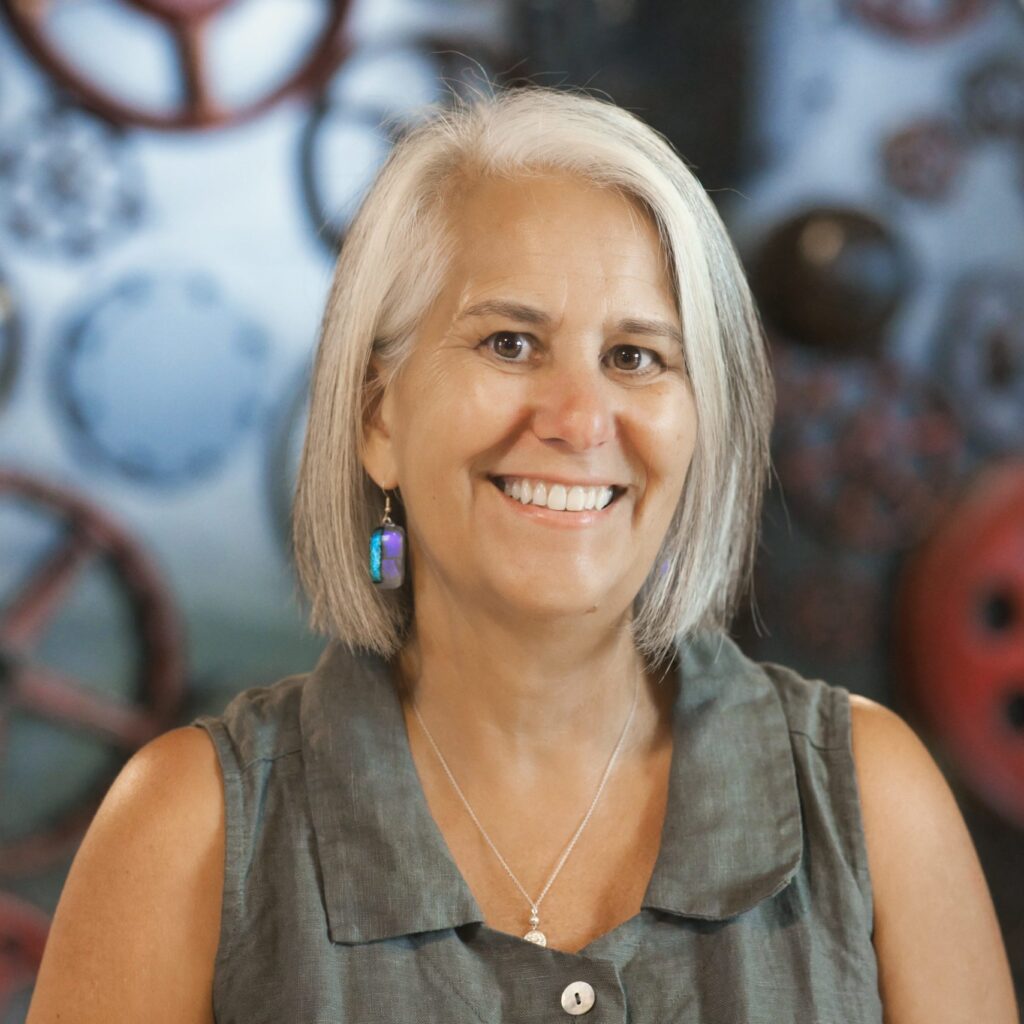
Biography
Amy DeRogatis is Chair and Professor of religion and American culture in the Department of Religious Studies at Michigan State University. She is the recipient of the William J. Beal Outstanding Faculty Award. The award recognizes excellence across the mission of the university.Dr. DeRogatis’ research focuses on the multiple ways that religious groups, people, and communities in the US express religious ideas, commitments, beliefs, and knowledge through embodied practices. In Saving Sex: Sexuality and Salvation in American Evangelicalism (Oxford, 2015) she delved into the history of popular evangelical sex manuals and the efforts that authors made to convince readers that embodied sexual practices and restraints constitute a form of witnessing to their faith. Her first book, Moral Geography: Maps, Missionaries, and the American Frontier (Columbia University Press, 2003) used cultural geography and spatial theory to examine white Protestant missionary efforts to shape the space of nineteenth-century northeastern Ohio. Drawing on an archive of letters, diaries, publications, and maps from the Connecticut Missionary Society, she argues that missionaries found evidence for their success by inscribing their moral values onto the physical landscape. DeRogatis is at work on a third book, Mormon King about James Jesse Strang and the Strangite community on Beaver Island, MI. Her most recent article from this research “Intimate Exposure: The Charley Douglass Daguerreotype and American Religious History,” concerns a daguerreotype of Elvira Eliza Field (Strang’s first plural wife), dressed as his fictitious nephew Charley Douglass. Dr. DeRogatis has recently begun another research project on Edith Cold, a twentieth-century American missionary to Turkey who witnessed the atrocities in Hadjin, Turkey in spring 1920. She is also the co-director of the American Religious Sounds Project, a collaborative digital initiative, supported by the Henry Luce Foundation, to document and interpret the diversity of American religious life by attending to its varied sonic cultures. The ARSP has recently been featured for its work on religious sounds during the COVID-19 pandemic.EducationPh.D., University of North Carolina (Religious Studies)M.T.S, Harvard Divinity SchoolB.A., Oberlin CollegePrinciple Scholarly Interests Religion in North America, religion, gender, and sexuality, Evangelicalism, religion and sound, religion and embodiment, Protestant missionaries
College of Arts & Letters News
- MSU Launches New Major in Nonprofit Leadership, Religion, and Social ChangeCollege of Arts & Letters
September 10, 2025The Department of Religious Studies at Michigan State University has a new undergraduate major designed to meet the growing demand for ethical, culturally competent leaders in the expanding nonprofit, philanthropic, and service sectors. The Nonprofit Leadership, Religion, and […] Read Now →
- First Cohort of Students Graduate from M.A. in Nonprofit Leadership, Global Cultures, and Social Enterprise...College of Arts & Letters
May 8, 2025The first cohort of M.A. in Nonprofit Leadership, Global Cultures, and Social Enterprise students graduated this month from Michigan State University. Launched in Fall 2023, the M.A. in Nonprofit Leadership, Global Cultures, and Social Enterprise is a result of several years […] Read Now →
- Lecture Series Showcases Strong Connection Between Religious Studies and MSU Libraries’ Special CollectionsCollege of Arts & Letters
January 29, 2025Religious Studies faculty will discuss how the MSU Libraries’ Special Collections informs their teaching and research as part of the Collecting Religion Lecture Series offered this semester. Hosted by MSU Libraries and organized in collaboration with the Department of […] Read Now →
- New MSU Global Nonprofit Leadership M.A. and Certificate Programs LaunchCollege of Arts & Letters
May 30, 2023For the first time at Michigan State University, graduate students and professionals can enroll in the new Nonprofit Leadership, Global Cultures, and Social Enterprise master’s degree and graduate certificate programs. Online courses begin in the Fall 2023 Semester. The […] Read Now →
- Religious Studies Department Presents Its Annual Student AwardsCollege of Arts & Letters
April 25, 2023The Department of Religious Studies at Michigan State University held its 2023 Undergraduate Symposium on April 14 during which three undergraduate students — Emily “Em” Perkins, Rana Omar, and DuJour Johnson — were recognized with awards for their outstanding […] Read Now →
SPARTANS WILL | © Michigan State University